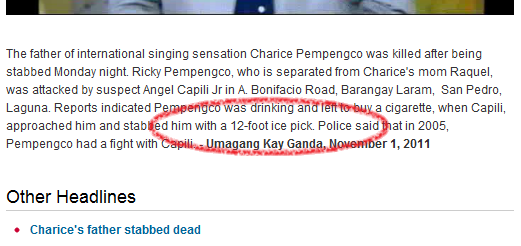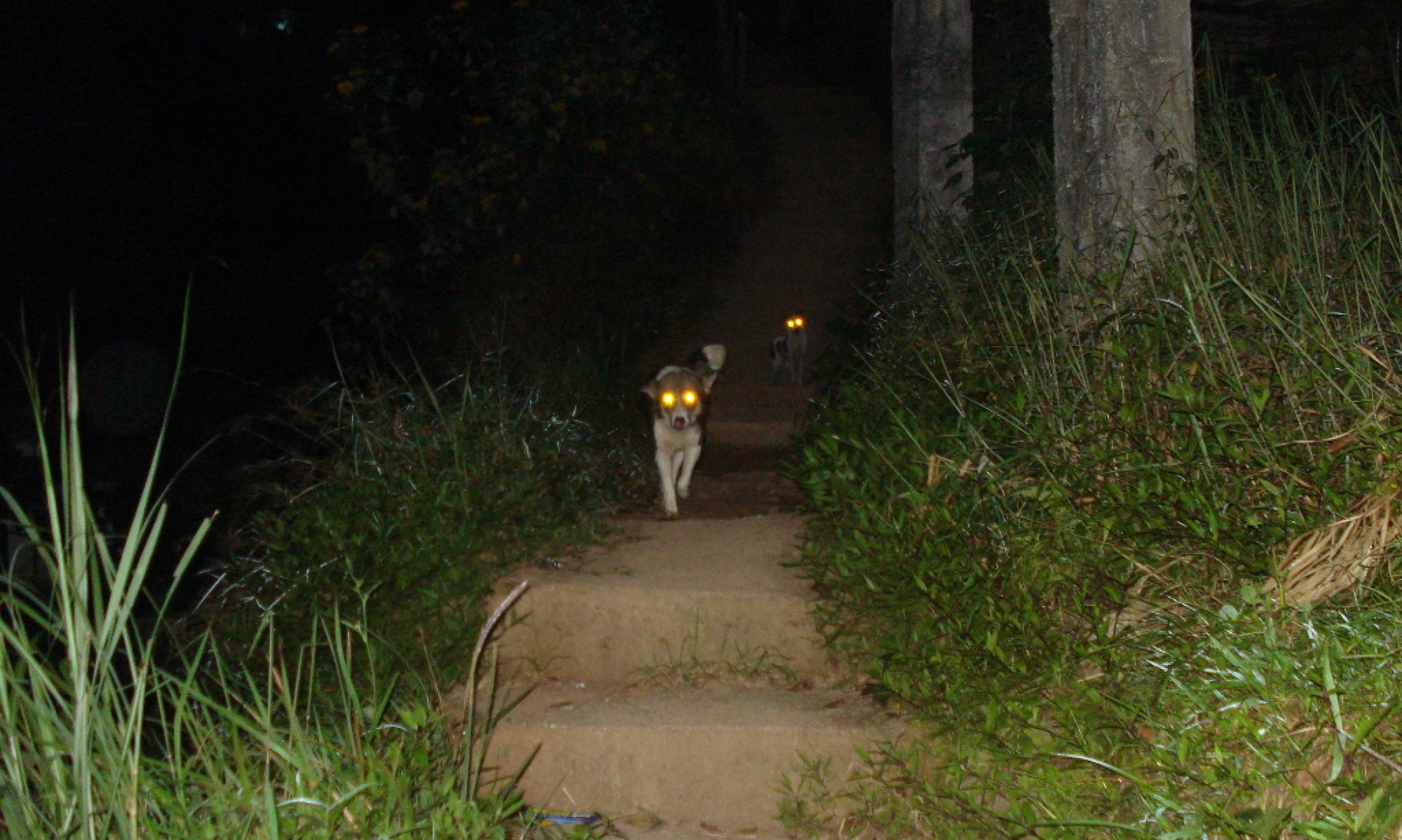I know it’s tragic enough that Charice’s estranged father had to catch up with the November 1 memorials to the dead, lying inside a coffin with an ice-pick stab. But it’s doubly tragic that an ABS-CBN news item early this morning had him killed “with a 12-foot icepick.” What did the writer have in mind, a bamboo skewer for lechon vaca?
And it’s triply tragic for media showbiz reports to spread vile rumors about Charice’s alleged reactions about his father’s death. What do showbiz reporters wear for Halloween night anyway, a repulsive bat’s face? Or do they simply come to the party as they are? What is it with Metro Manila media these days anyway?


